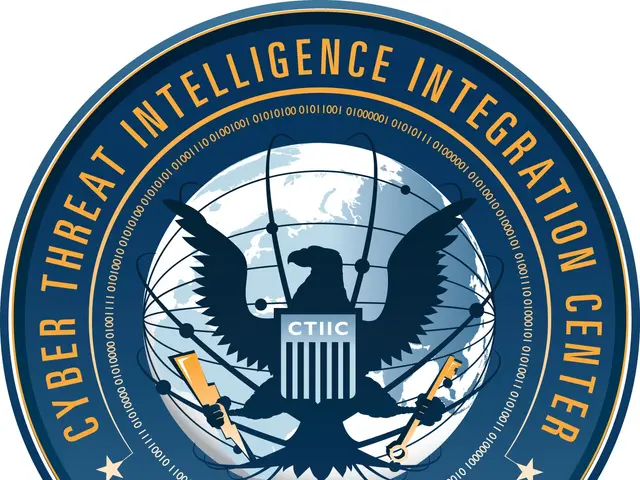Gambling Gold Fever: The Prosperity of Casino Titans Amidst the surge of Online Betting Markets
In the face of looming economic storms, the gambling industry is riding a digital wave that shows no signs of crashing. Major casino operators are swiftly moving towards online platforms, demonstrating remarkable resilience amid potential economic headwinds. Recent financial reports from key players in the industry paint a picture of significant health, particularly in their digital divisions.
Trade tariffs may be causing alarms among economic analysts, but gambling executives remain optimistic about their companies' prospects. During recent earnings calls, leadership teams from Caesars Entertainment, MGM Resorts, and Rush Street Interactive emphasized solid first-quarter performance metrics that either held steady or improved compared to last year.
Tom Reeg, Caesars' CEO, dismissed gloomy economic narratives, stating that consumer behavior remains largely unchanged. Despite any negative headlines about financial troubles, Reeg explained, they're not seeing changes in spending patterns. Visitor numbers to Caesars properties have stayed consistent through April, with no dramatic dropoff anticipated for the rest of Q2.
Caesars Entertainment reported GAAP net revenues of $2.8 billion for Q1 2025, edging up from $2.7 billion in the same period last year. BetMGM, a joint venture between MGM Resorts and Entain, reported total revenue of $657 million in Q1, representing a 34% year-over-year increase.
Perhaps most striking is BetMGM's profitability turnaround. In Q1 2025, the company achieved positive EBITDA of $22 million, marking a $154 million improvement from the same period last year when it recorded a $132 million loss. This dramatic shift underscores the growing profitability potential in the digital gambling space.
Rush Street Interactive, based in Chicago and operating exclusively online through its BetRivers brand, reported equally impressive results. The company's Q1 revenue hit $262.4 million, up 21% year-over-year, alongside net income of $11.2 million – a significant improvement from the $2.2 million loss posted during the same period in 2024.
Online betting and casino operations have emerged as effective buffers against potential economic turbulence. Both MGM and Caesars reported substantial year-over-year increases in their digital gambling revenues, with Caesars managing to grow its digital profits nearly eightfold in Q1 2025.
Looking at segment-specific performance, BetMGM's iGaming division generated $443 million in Q1 2025, reflecting a robust 27% year-over-year increase. Its Online Sports segment delivered even more impressive results with revenue surging 68% to $194 million, highlighting the effectiveness of the company's enhanced product offerings and player engagement strategies.
On the user front, BetMGM reported its average monthly active users rose 6% to 1.07 million, demonstrating strong user engagement and retention. The company maintained its leadership in the iGaming space with a 22% market share while holding an 8% share in the increasingly competitive Online Sports betting market.
Asia is set to drive 42% of the global sports betting market's growth, according to tech research firm TechNavio. Their research particularly highlights China and Australia as promising regions for expanded sports betting growth, with online games and fantasy sports platforms expected to fuel demand in these markets.
Technological transformations are also revolutionizing the player experience. Virtual reality and augmented reality integration, blockchain technology, personalization, and AI-driven analytics represent key areas of innovation.
Artificial intelligence represents perhaps the most transformative force in online gambling today, influencing everything from player analytics to operator risk management and marketing.
The investment sector is pouring resources into digital gambling, attracted by the sector's potential for high-margin operations, recurring revenue models, and global growth opportunities. Private equity firms and venture capitalists actively fund innovative platforms and cutting-edge betting technologies, fueling industry innovation, consolidation, and competition.
As the industry expands, sustainability and responsible gaming initiatives are gaining importance. By implementing measures like deposit limits, reality checks, and self-exclusion options, operators aim to strike a balance between growth ambitions and promoting responsible gaming practices that protect vulnerable players and maintain regulatory compliance.
- In the face of economic storms, the gambling industry is maintaining its momentum by embracing online platforms, demonstrating remarkable resilience against potential economic headwinds.
- Major casino operators like Caesars Entertainment, MGM Resorts, and Rush Street Interactive have reconsidered their business strategies, focusing more on online gambling to counteract any negative impacts of tariffs or trade disputes.
- Despite financial troubles in other sectors, gambling executives, such as Tom Reeg from Caesars Entertainment, are optimistic about their companies' prospects in the digital domain, as consumer behavior remains mostly unchanged.
- Online betting and casino games have emerged as effective buffers against economic turbulence, generating impressive results for companies like MGM and Caesars, with substantial year-over-year increases in digital gambling revenues.
- Blockchain technology, artificial intelligence, virtual reality, and augmented reality are all examples of technologies that are differentiating the online gambling space, revolutionizing the player experience and driving investments from the finance sector.
- As the sector expands, operators are focusing on sustainability and responsible gaming initiatives, ensuring practices like deposit limits, reality checks, and self-exclusion options are implemented, promoting responsible gaming while maintaining regulatory compliance.








